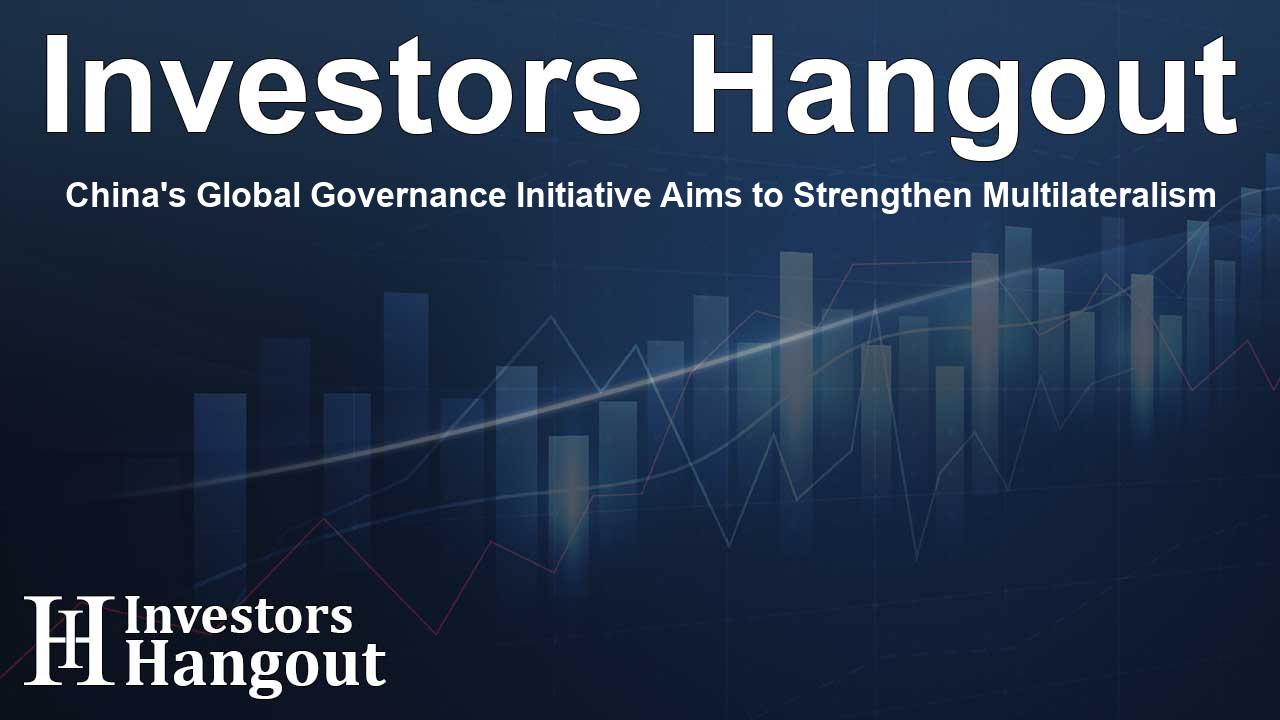China's Global Governance Initiative Aims to Strengthen Multilateralism

China's Global Governance Initiative Aims to Strengthen Multilateralism
At a recent forum, the Global Governance Initiative, introduced by President Xi Jinping, captured significant attention for its promise to reinvigorate global cooperation and multilateralism. Experts at the United Nations marked the occasion by highlighting the initiative's alignment with the core goals of the UN on its 80th anniversary.
The Vision behind the Initiative
During the Vision China event themed 'Standing United: Inheriting the UN Legacy, Advancing Global Governance', participants emphasized the need to address the pressing challenges faced by global institutions. China's permanent representative to the UN, Fu Cong, reflected on the UN's historical accomplishments but pointed out the growing strains on its frameworks due to underrepresentation and other global challenges.
Key Themes and Principles
Fu articulated that the initiative has gained favorable responses worldwide, underscoring its frameworks around five core principles: sovereign equality, international rule of law, multilateralism, a people-centered approach, and achieving tangible results. He made clear that these principles align closely with the foundational objectives articulated in the UN Charter.
Support from Global Leaders
As the Global Governance Initiative unfolds, UN Secretary-General Antonio Guterres has also acknowledged its significance, particularly its focus on upholding an international rule-based system. China’s commitment to the UN's central role in global governance was reiterated at the forum, which was a collaborative event co-hosted by China Daily and the Permanent Mission of China to the UN.
Responses from Notable Figures
Qu Yingpu, the publisher and editor-in-chief of China Daily, recognized the initiative as the latest effort in a series of proposals intended to bolster global governance principles. These proposals are crucial, especially in a landscape where unilateralism poses challenges to multilateral institutions both new and established.
During the forum, UN Under-Secretary-General for Economic and Social Affairs, Li Junhua, remarked that the initiative offers a timely framework to enhance international cooperation, particularly as global institutions are pressured by instances of conflict and inequality.
Economist Jeffrey Sachs highlighted the necessity for renewed cooperation among major world powers, advocating for China to take a more influential stance within international governance systems. He proposed establishing a UN campus in China to tackle critical issues like climate change and energy.
Regional Perspectives on Global Governance
Not only did attendees express their support for the Global Governance Initiative, but former ambassador Kishore Mahbubani emphasized that it signifies a calculated approach to fortifying the UN ahead of its significant milestone. He urged against creating completely new institutions, advocating instead for enhancing existing frameworks.
Nell Chennault Calloway, representing her family's legacy connected to historical military cooperation, stressed the importance of dialogue and cooperation over rivalry to uphold the UN’s foundational promises.
In a broader context, Dima Al-Khatib from the UN Office for South-South Cooperation noted that China’s initiative, with its five pillars, represented a robust strategy to support the Global South's objectives and aspirations.
Global Participation and Commitment
With over 200 participants, including diplomats from various nations and members of several sectors, the event reinforced China's role in promoting global stability and governance. Albadawe Abdalla articulated that peace is foundational to development and governance, referencing China's efforts in humanitarian assistance across Africa as an exemplary contribution to global leadership.
The remarks from Zlatko Lagumdzija, a Bosnian diplomat, affirm that China's Global Governance Initiative adds a roadmap for the global community to follow in addressing current challenges and fostering collaboration.
Frequently Asked Questions
What is the Global Governance Initiative?
The Global Governance Initiative is a proposal by China aimed at enhancing multilateralism and international cooperation through five key principles.
Who introduced the Global Governance Initiative?
President Xi Jinping introduced the Global Governance Initiative at a summit to strengthen international relations and global governance frameworks.
What are the core principles of the initiative?
The initiative is based on sovereign equality, international rule of law, multilateralism, a people-centered approach, and achieving real results.
How has the initiative been received internationally?
The Global Governance Initiative has received positive feedback from global leaders and experts, affirming its focus on multilateralism.
What role does China play in global governance?
China positions itself as a leader in global governance, advocating for cooperative approaches to address issues like inequality and environment challenges worldwide.
About The Author
Contact Addison Perry privately here. Or send an email with ATTN: Addison Perry as the subject to contact@investorshangout.com.
About Investors Hangout
Investors Hangout is a leading online stock forum for financial discussion and learning, offering a wide range of free tools and resources. It draws in traders of all levels, who exchange market knowledge, investigate trading tactics, and keep an eye on industry developments in real time. Featuring financial articles, stock message boards, quotes, charts, company profiles, and live news updates. Through cooperative learning and a wealth of informational resources, it helps users from novices creating their first portfolios to experts honing their techniques. Join Investors Hangout today: https://investorshangout.com/
The content of this article is based on factual, publicly available information and does not represent legal, financial, or investment advice. Investors Hangout does not offer financial advice, and the author is not a licensed financial advisor. Consult a qualified advisor before making any financial or investment decisions based on this article. This article should not be considered advice to purchase, sell, or hold any securities or other investments. If any of the material provided here is inaccurate, please contact us for corrections.
